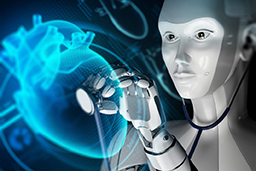The subject of artificial intelligence is one of those that, in this period, dominate public and private debates, raising disturbing fears and questions. This time, however, the European Union seems to have moved quickly and is about to approve specific legislation to regulate the issue of artificial intelligence.
On 14 June, in fact, the European Parliament decided to proceed with the negotiation of the draft Artificial Intelligence Act (AIA), previously proposed by the European Commission: This is the formal step necessary for the start of the debate, which will culminate in the adoption of the final AIA text, which is expected to take place by the end of this year.
AIA aims to prevent the negative effects that the development of artificial intelligence could have on the personal, social and working lives of European citizens. In general, the AIA text provides that some applications of artificial intelligence will be completely banned if legislators consider the risk “unacceptable,” while technologies considered “high risk” will have new usage restrictions and transparency requirements.
In particular, AIA intends to ban the use of artificial intelligence for the recognition of people’s emotions through facial analysis (for example to understand when a student is not understanding a certain material or when the driver of a car could fall asleep), since the results achieved seem absolutely unreliable and inaccurate.
Furthermore, there is a ban on collecting biometric data for predictive police checks, as well as the practice of collecting and using data on people’s social behavior to create generalizations and profiles.
An important rule is provided for copyright protection: The Hague in fact prohibits training an artificial intelligence engine using works protected by copyright, provided that the right holder has not given his consent. This prohibition has been foreseen in order to avoid what has already happened with ChatGPT, software that, among other things, can generate short stories, scripts, etc. on the basis of input received from users, which could however be taken from copyrighted works, in which case the output generated by artificial intelligence could result in a violation of the copyright of others. On the other hand, the current version of AIA does not provide for the protection of works created by artificial intelligence systems, through inputs that do not infringe any copyright, leaving this delicate subject to the regulation of national regulations.
At first glance, therefore, AIA seems to be an indispensable instrument – although in itself it can certainly be improved in the forthcoming negotiations between the European institutions – in order to establish a common European basis for the regulation of practices related to the use of artificial intelligence systems, which affect the future, the work and the social evolution of European citizens.

